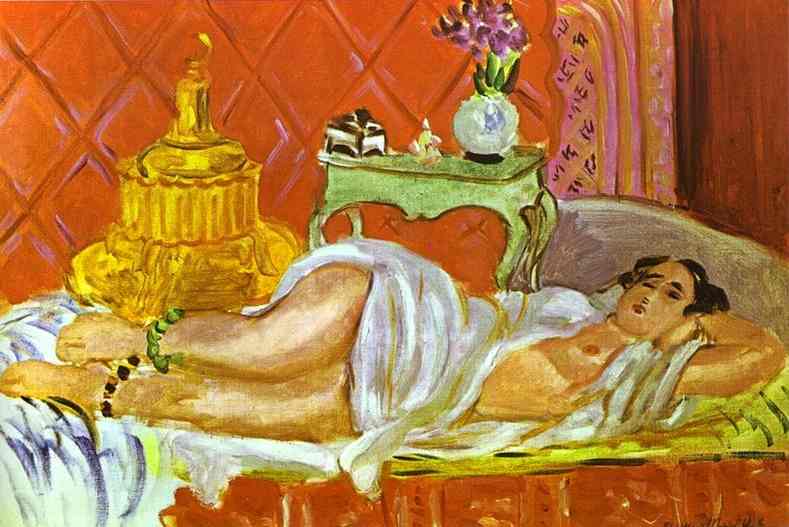art-Matisse.com
Henri Matisse 1869-1954
©Henri Matisse - Odalisque, Harmony in Red 1926
 Odalisque, Harmony in Red |
From the Metropolitan Museum of Art, New York City:
Odalisques were the most popular subject of Matisse's Nice period, during the 1920s. They appear in diverse poses in innumerable canvases: reclining, lounging, seated, or standing, frequently with their arms raised or folded behind the head. Dressed or semi-dressed in exotic attire, they are placed against a decorative background of richly patterned fabrics and oriental rugs and surrounded by oriental accoutrements. Matisse's primary model for these depictions, from 1920 to 1927, was Henriette Darricarrière (born 1901), a young woman skilled in the arts of ballet, piano, violin, and painting who lived near Matisse's studio.
In his third-floor apartment at 1, Place Charles-Félix, Matisse arranged an "Oriental" alcove, equipped with a low couch, mirrors, decorative screens, and profusely patterned wall hangings, creating an atmosphere of reverie and exoticism reminiscent of the Moorish interiors he had seen in Morocco. The model's sculpturesque body, languorously stretching on the couch, exudes sensuality and carnality, enhanced by the warm rosy red color scheme. The mood of "luxe, calme et volupté" is clearly palpable. Yet, contemplating the work, one gets the impression that the artist somehow distanced himself from the erotic content of the picture while leaving the excitement of recognition to the viewer. Despite their attempt at authenticity, the paintings appear carefully staged and full of theatricality. The theme of odalisques during Matisse's Nice period is central not only to his paintings, but also to his sculptures, drawings, and prints.